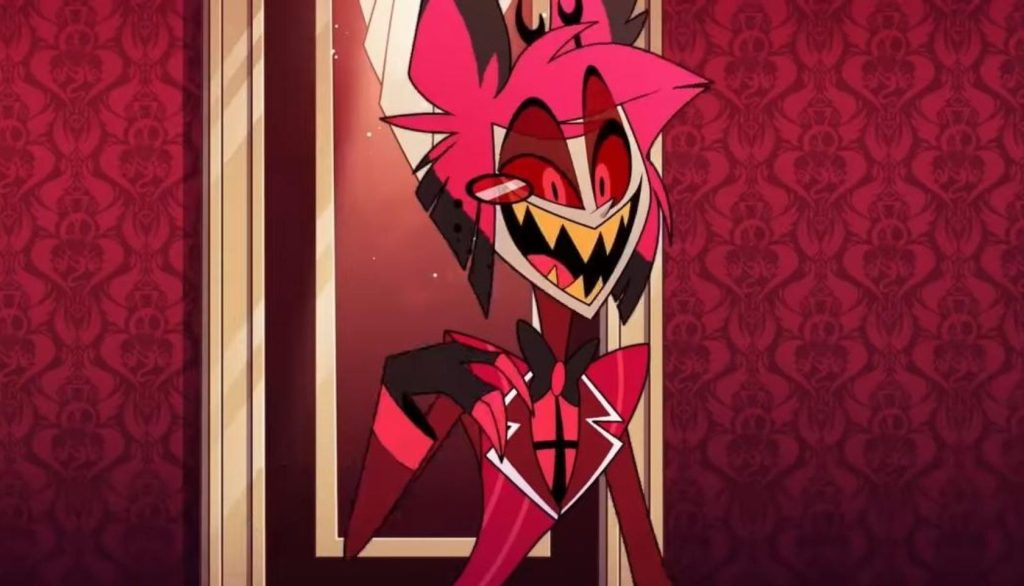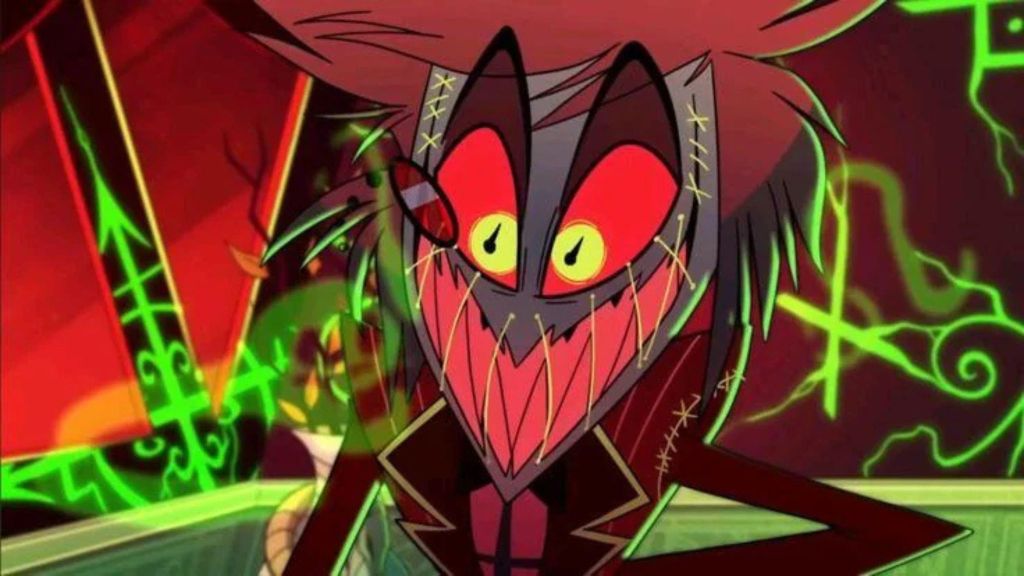
Amir Talai’s performance as the Radio Demon, Alastor, in Prime Video’s smash hit Hazbin Hotelis a masterclass in controlled chaos. Alastor is the very definition of a smooth operator—a terrifyingly powerful Overlord and the “most powerful sinner” in Hell who hides his true intentions behind a vintage radio filter and a fixed, unsettling smile. This grin is more than just a character design quirk; it’s a constant mask that Alastor wears with purpose. While Alastor’s antics are known for dramatic flair and impressive musical numbers, this very specific and carefully crafted composure is what has created one of the deepest and most unexpected connections between the character and the audience.
In an exclusive interview with ComicBook about Hazbin Hotel Season 2, Talai revealed that the key to Alastor’s true power lies in the commonly shared experience of “masking”—the societal pressure to be accepted, even when you feel unwelcome or out of place. Talai discussed how the concept of always being “on”—constantly smiling when Alastor might rather not, in order to hide his true intentions—is a shared human experience that goes way beyond angels and demons, connecting the Radio Demon to everyone from the neurodivergent community to marginalized groups simply trying to navigate the world.
Alastor’s Constant Smile is a Reflection of “Code-Switching” That Many Rely on For Social Survival

In the chaotic afterlife of Hell, Alastor stands out for his unnerving level of control. He never loses his composure, and he never lets his smile falter. In fact, he outwardly tells Charlie that “a smile is a valuable tool” that always keeps one’s enemies guessing. According to Amir Talai, that very rigidity is what makes Alastor so relatable despite his extraordinary circumstances, even among fans who might not consciously recognize the connection. The smile isn’t an expression of genuine happiness—it’s a defensive barrier, a form of self-regulation designed to control how others perceive him.
Talai discussed how often people resort to “masking,” especially in unfamiliar or anxiety-inducing situations, and how this phenomenon is common from the neurodivergent community—where people mask to blend in—to neurotypical people facing social pressures.
“People have asked me, ‘Do you smile the entire time in the booth?’ No. That’s for the animators to worry about. If I’m angry, I play it angry. If I’m frustrated, I play it frustrated,” Talai explained. “I think that Alastor has a sense of being on at all times. I think we all wear masks, right? I think we all hold subtextual emotions in various situations. I always talk about how, being a person of color in Hollywood, you’re regularly wearing a mask to cover how you’re feeling about a certain situation. I’ve been in a room full of 20 white people telling me how much they value diversity, and I’m the only POC person in that room. So, I think that everyone relates to that part of [Alastor]. And that’s not something that I’m unfamiliar with either. So, it doesn’t take a lot of work to play that.”
When one feels like an outsider, they feel as though they have to work twice as hard to “fit in.” For Alastor, the constant, unnerving smile is his way of signaling that he has total control over a situation when, in reality, his soul is under Rosie’s command. Alastor, as a human, willingly sold his soul to Rosie for power in the afterlife, a clear sign of trying to make sense of something so unknown—the concept of life after death—and ensuring that no one in Hell would ever get a true glimpse of his vulnerability or underlying motives.
Alastor’s need to constantly perform, both during his human life and his afterlife, and regulate his true feelings is a burden many fans, particularly those in marginalized groups, instinctively understand. The fact that a powerful demon has to resort to this kind of self-monitoring suddenly humanizes his struggle, making him more than just a villain, but a reflection of the many very mortal pressures we all face.
Constantly Being “On” Is an All-Too-Relatable Burden

The nature of masking, as Talai sees it, is a universal experience. He draws a powerful parallel between Alastor’s performance and the experiences of marginalized groups who must purposely craft their behavior in order to feel like they belong in certain environments.
“ I mean— women! Let’s talk about women who have to regulate their emotions outwardly. I think that a lot of fans, and certainly a lot of neurodivergent fans, relate to Alastor because of his masking. I think that it is something that a lot of neurodivergent people have to do. So do neurotypical people, right? But I think that this is something that a lot of people relate to.”
This constant necessity to be “on” is exhausting, even for an otherworldly demon. Alastor’s commitment to the bit in order to achieve his (unknown) goals is absolute, and while that sort of drive and focus is part of what makes him so powerful, it also requires never-ending effort. That constant performance, that unwavering lack of authentic emotional expression that we know of yet, is what makes the character’s moments of subtle frustration or the tiniest breaks in his composure all the more tantalizing. Fans recognize the drain of a constant façade and see their own moments reflected in a demon who never stops smiling.
Ultimately, Alastor’s mask is not just a clever design choice; it’s a brilliant commentary on the emotional drain it takes to exist and thrive in spaces where someone is viewed as an outsider.
What do you think? Leave a comment below and join the conversation now in the ComicBook Forum!
